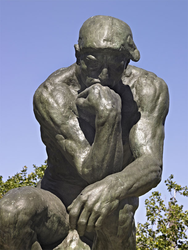Philosophy
ComplianceTech®

Ideas lead the world, even in the disenchanted period in which we live, for disenchantment is a philosophical Weberian idea. Thus, as the market does, Regulation too often appears as a state of nature, the two being correlated since Regulatory mechanisms is simply the response to a market failure. In reality, regulation obeys a certain conception of the State, the common goods, the benefits attributed to competition, the balance between competition and other principles, the balance between political powers, etc. : So many philosophical ideas.
If we are to relate the Regulation to a more particular philosophy, it would be a philosophy of liberal economy, which posits that in the ordinary, on ordinary goods, supply and demand produce a satisfactory result The supplier and the applicant, the economic life not summarizing the life of the person. But the Regulation is a philosophy because, independently of the technical market failures, to qualify or not an "ordinary" good is a philosophical position. Thus, the training of people or the level of protection of the health of individuals and the assumption of responsibility for the social group and the assumption of responsibility for this service is a political position reflected in the Regulation. This is why regulation can not be confined to economic science, the law of which being merely its translation.
In the same way, regulation, because it is the scientific response to market failures, can not be the pure secular arm of a political will, because economic theory must make its voice heard. Philosophically, Regulation is therefore a complex figure, a triangle whose points are Law, Economics and Politics, none of which can claim to have entirely taken over the others.
comments are disabled for this article